This list includes 16 of the best low carb vegetables, most with less than 8 go of net carbs in a serving.
Veggies and healthy eating go hand in hand, and keto is no exception to this rule. But on a keto diet, you need to pay close attention to carbs in vegetables to stay within your daily limits.
Unfortunately, there’s no standard definition of low-carb vegetables, which makes searching for truly low-carb options difficult. As a general rule, those with less than 8 g of net carbs in a serving can be said to fit this definition (the USDA sets the serving size of most fruit and vegetables at one cup).
Now you’re wondering, “what vegetables are low-carb and what vegetables can I eat on a keto diet?”
To find out, take a look at this list of the 16 best low-carb vegetables for your keto diet.
1. Spinach
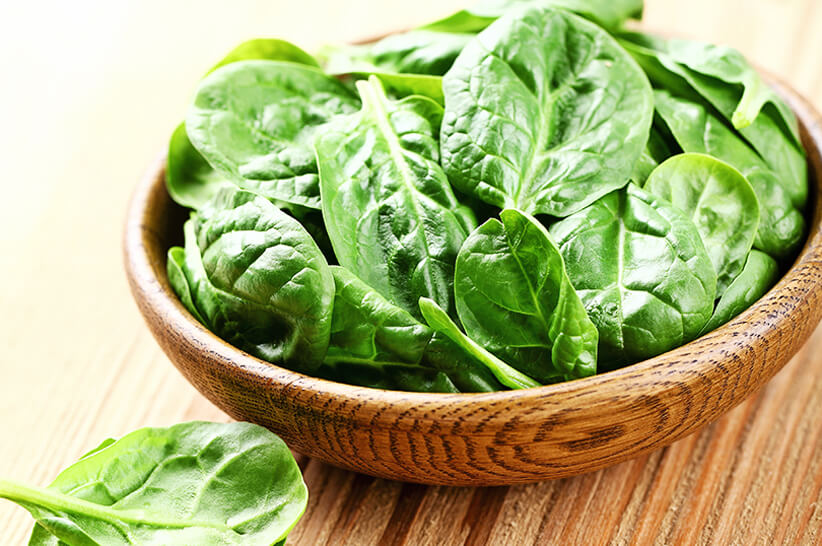
Besides being one of the lowest carb vegetables out there, spinach is rich in vitamin A (54% DV), folate (15% DV), and magnesium (6% DV) 1.
Most leafy greens are good for keto, but spinach definitely tops the list at below 1 g of net carbs. Use it in your salads, soups, casseroles, and green smoothies. And when not in season, frozen is best.
Net carbs: 0.4 g; Protein: 0.9 g; Fat: 0.1 g
2. Avocado
King in the world of keto vegetables, avocado is the only one that’s high in fat. Avocados are also low in carbs and rich in fiber
Its micronutrient content is nothing short of impressive: a cup will give you plenty of vitamin C (25% DV), folate (30% DV), vitamin B6 (19% DV), potassium (21% DV), and magnesium (11% DV) 2.
Use this creamy goodie as a smoothie thickener, to make low-carb guac, and on top of keto toast.
Net carbs: 2.7 g; Protein: 3 g; Fat: 22 g
3. Celery
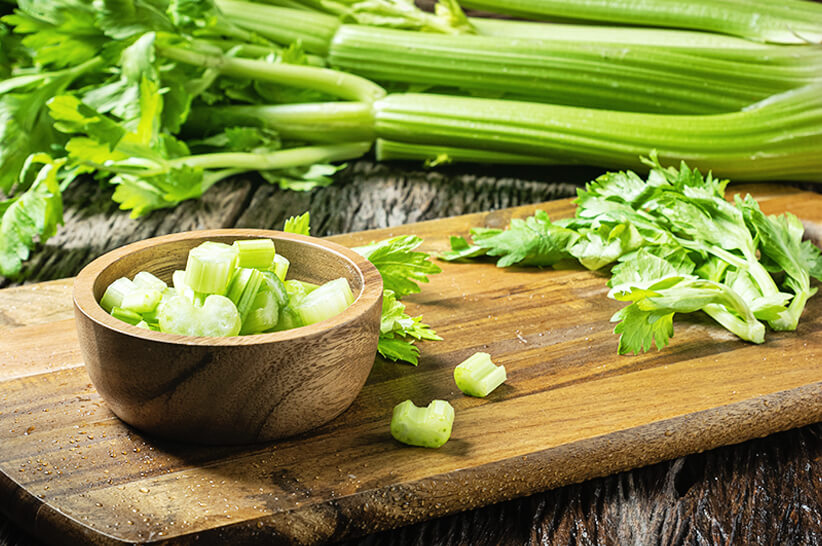
Celery is mostly water with a negligible amount of carbohydrates. It provides a modest dose of almost every nutrient (1-5% each) 3, and it is rich in antioxidants.
It’s also crunchy, refreshing, and serves as the perfect vessel for your favorite keto spreads, like peanut butter and cream cheese. Feel free to use it in soups for more bite and flavor.
Net carbs: 1.9 g; Protein: 0.7 g; Fat: 0.2g
4. Asparagus
This spring favorite pairs well with poached eggs, hollandaise, and crispy bacon. You can roast, boil, braise, grill, and even enjoy it raw.
And at 2.5 g of net carbs, feel free to double your serving. Nutrients asparagus is rich in include thiamin (13% DV), riboflavin (11% DV), folate (17% DV), iron (16% DV), and manganese (11% DV) 4.
Net carbs: 2.5 g; Protein: 2.9 g; Fat: 0.2g
5. Cauliflower
This cruciferous superfood is a keto diet staple. Keto-ers use it as a rice, couscous, and potato substitute. Its mild flavor makes it a versatile ingredient with many uses in soups, stews, bakes, and casseroles.
Nutritionwise, cauliflower is rich in vitamin C (77% DV), vitamin B6 (11% DV), and potassium (9% DV) 5. It contains carotenoid and flavonoids that can ward off chronic diseases.
Net carbs: 2.8 g; Protein: 2 g; Fat: 0.1g
6. Cucumbers
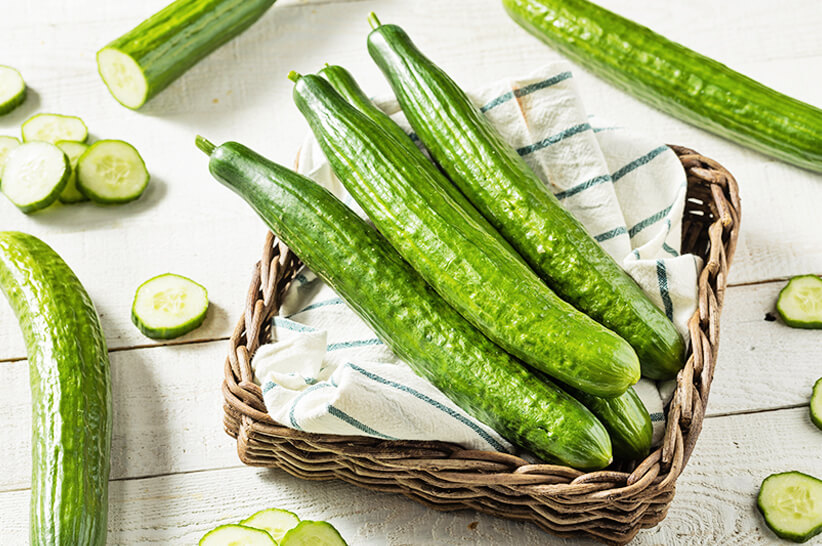
Mostly containing water, cucumbers are low in carbs. These refreshing veggies provide 2-4% of the DV of vitamin C, B vitamins, and minerals 6. But where they shine is in their anti-inflammatory antioxidants, most of which are concentrated in the peel.
Add cucumbers to low-carb, creamy salads or use them for your crudites platter. Cucumbers are great blended in smoothies.
Net carbs: 3.1 g; Protein: 0.7 g; Fat: 0.1g
7. Cabbage
Another cruciferous vegetable to make it on our list, cabbage provides health benefits without the carbs. It’s an antioxidant-rich ingredient that you can use for things like keto coleslaw and low-carb soups.
Cabbage is exceptionally rich in vitamin C (43% DV), vitamin K (66% DV), and folate (8% DV) 7. It’s a decent source of fiber, a nutrient that’s hard to get on keto.
Net carbs: 2.3 g; Protein: 0.9 g; Fat: 0.1g
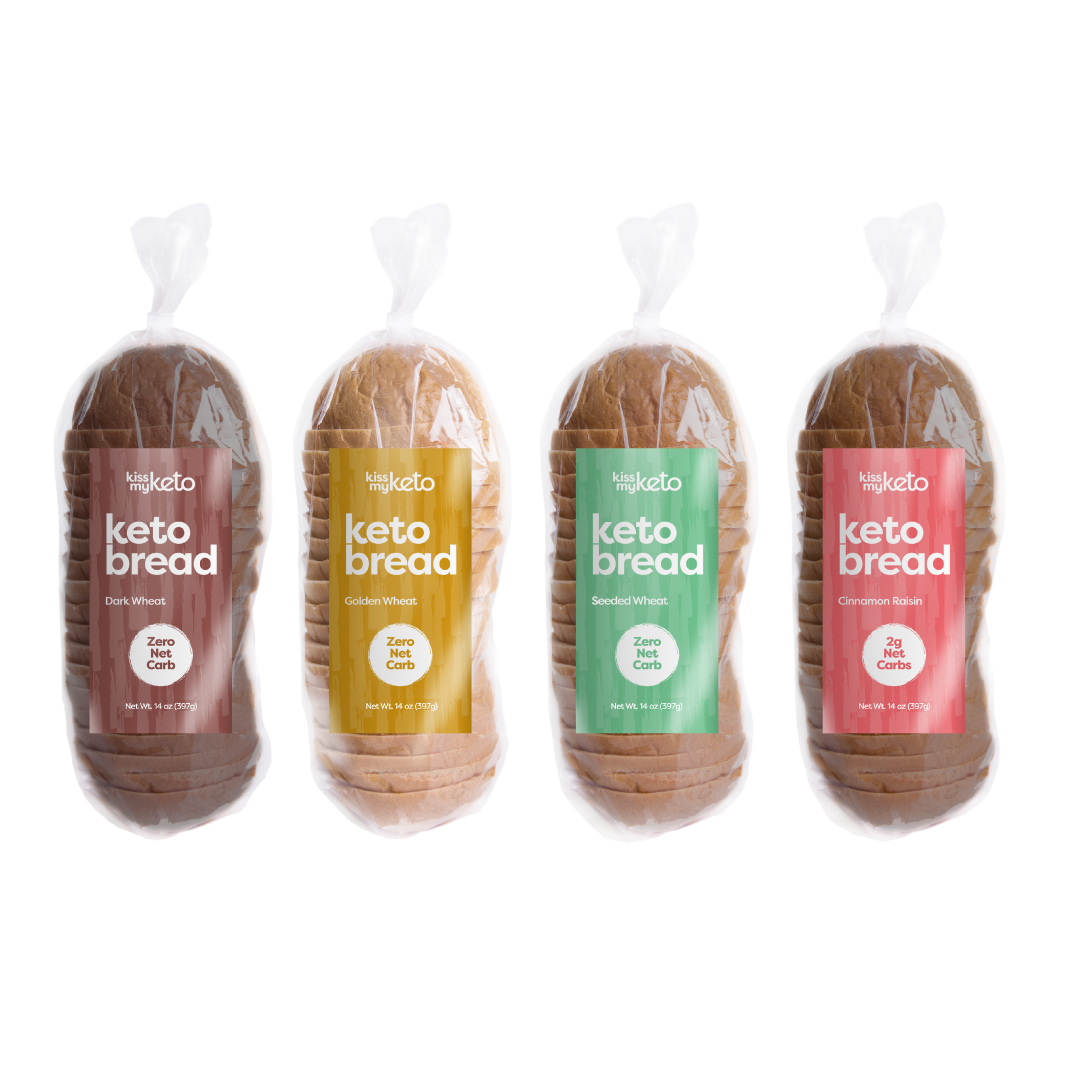
8. Mushrooms
There are dozens of different edible mushrooms, but most people eat white buttons. Button mushrooms have a meaty texture, rich flavor, and only around 2 g of net carbs.
They provide a decent 3g of protein and a good dose of riboflavin (23% DV), niacin (17%), and copper (15% DV) 8.
Net carbs: 2.1 g; Protein: 3 g; Fat: 0.3 g
9. Green Beans
Beans are a no-no on keto. But green beans are a different story.
Like most unripe veggies, green beans are low in sugar. They’re great steamed and served as a side dish to grilled meat. Add them to spicy stir-fries or make a green bean salad.
Nutrients that are abundant in green beans include vitamin C (30% DV), folate (10% DV), manganese (12% DV), and many others 9.
Net carbs: 4.1 g; Protein: 2 g; Fat: 0.1 g
10. Artichokes
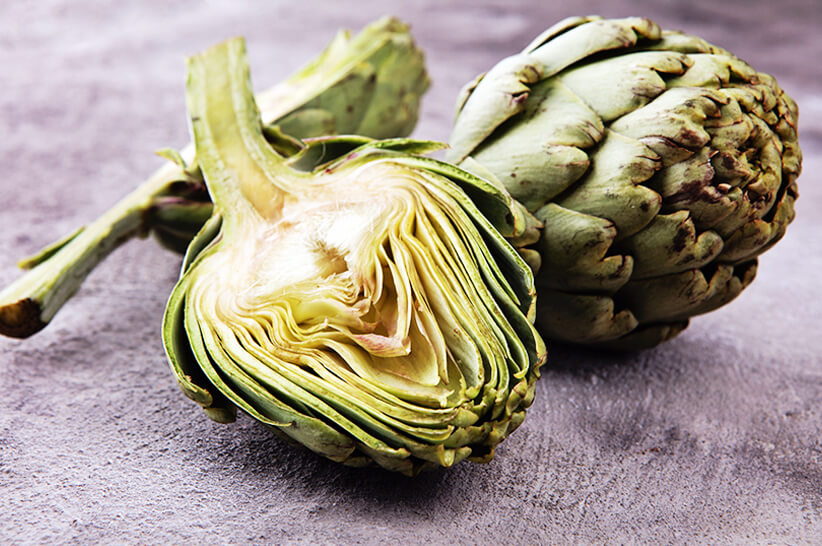
Another unique veggie with health benefits, artichokes provide ample fiber (41% DV) and a decent amount of protein (7% DV), which is great for appetite control and gut health.
Artichokes are exceptionally rich in folate (27% DV) and vitamin C (15% DV), nutrients that help prevent anemia. They also provide electrolytes like magnesium (13% DV) and potassium (10% DV) 10.
Net carbs: 4 g; Protein: 7 g; Fat: 0.4 g
11. Broccoli
Related to cauliflower, cabbage, and kale, broccoli provides many of the same disease-fighting benefits as its close cousins.
Where it shines though is in its vitamin C content — a serving of cooked produce will give you 84% if the DV of this antioxidant vitamin. Other nutrients worth noting include folate (21% DV) and potassium (8% DV) 11.
Make low-carb broccoli your side dish staple and have frozen florets available for convenience.
Net carbs: 3.6 g; Protein: 2.6 g; Fat: 0.3 g
12. Brussels Sprouts
A vegetable that pairs so well with bacon and that’s low in carbs is always a keto winner. Other ways to enjoy sprouts is by roasting them with browned butter and topping them with nuts and thyme.
Nutrients you’ll get from sprouts include fiber (2.6% DV), vitamin C (103% DV), folate (15% DV), and iron (7% DV) 12. Being a cruciferous veggie, sprouts also help fight chronic illness.
Net carbs: 4.5 g; Protein: 2.5 g; Fat: 0.5 g
13. Kale
Many consider kale a superfood thanks to its nutrient density and health benefits.
Nutrients you’ll get from kale include vitamin C (134% DV) and vitamin A (206% DV) 13, both powerful antioxidants. It also provides minerals in varying amounts.
Add kale to green smoothies for maximum benefits since cooking tends to degrade its antioxidant potential. When used in cooking, it’s delicious in stews and sauteed.
Net carbs: 4.5 g; Protein: 2.5 g; Fat: 0.5 g
14. Radishes
Below-ground veggies are high in carbs. But radishes are an exception. A serving will give you just around 2 g of net carbs and lots of vitamin C (29% DV) and fiber (7% DV) 14. They’re also high in antioxidants, particularly anthocyanins.
Radishes make a crunchy addition to salads, but you can also roast them if you don’t like their spicy flavor.
Net carbs: 2.1 g; Protein: 0.8 g; Fat: 0.1 g
15. Eggplant
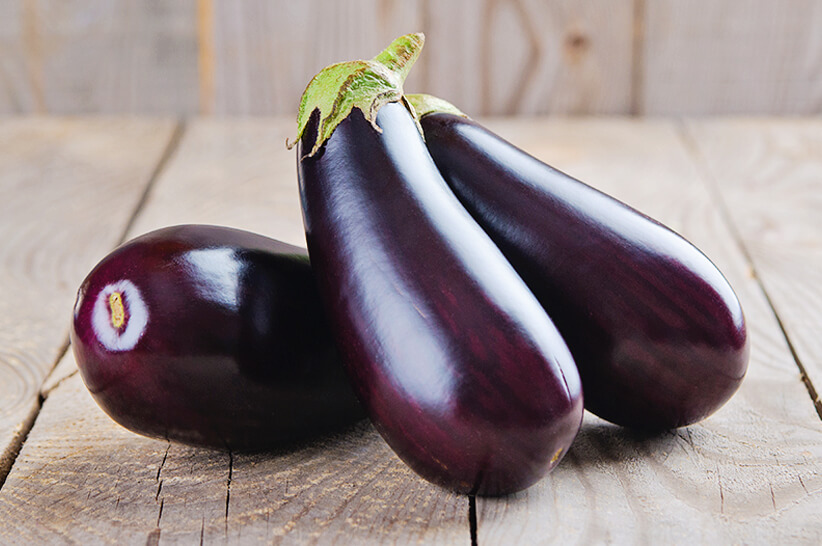
Eggplants are a low-carb veggie that can bring lots of fun to keto. They’re meaty and absorb flavors like no other. Possibilities include low-carb eggplant parmesan, stuffed eggplant, Asian eggplant stir-fry, grilled eggplant, and eggplant rolls
And where nutrition goes, the purple egg-shaped veggie provides fiber (10% DV), thiamin (5% DV), and manganese (6% DV) 15. Its pigmented skin is rich in pigment antioxidants called anthocyanins.
Net carbs: 5.6 g; Protein: 0.8 g; Fat: 0.2 g
16. Zucchini
Another keto diet staple, keto-ers rely on zucchini noodles as their pasta substitute. But there are other uses of zucchini on a low-carb diet: Parmesan roasted, stuffed, stir-fried, frittata, and stir-fries.
Raw zucchini has vitamin C (35% DV), riboflavin (10% DV), vitamin B6 (14% DV). It provides many other nutrients in lesser amounts 16.
Net carbs: 2.8 g; Protein: 1.5 g; Fat: 0.2 g
While there’s no such thing as carb-free vegetables, low-carb veggies can do the trick.
This low-carb vegetable list includes only those that provide less than 8 g of net carbs in a single serving.
Making these your daily staples will help you meet your daily needs for fiber, vitamin C, and minerals while staying true to your keto principles.
Takeaways
- Vegetables containing less than 8 g of net carbs in a serving are perfect for keto.
- Low-carb veggies are sources of fiber, vitamin C, and minerals.
- The best ones are dense in nutrients and provide antioxidant benefits.
- Low-carb veggies bring versatility to keto.




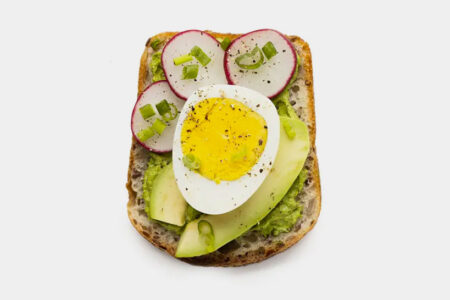
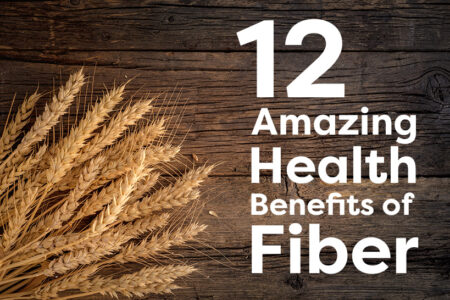


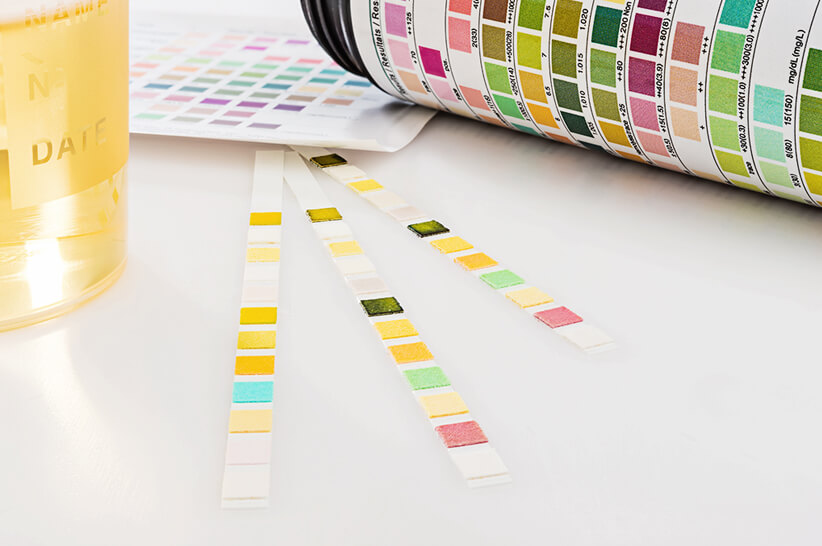
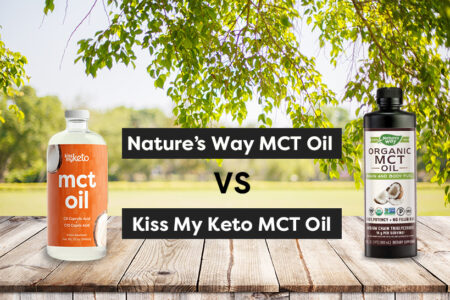
![Juicing for Weight Loss: Everything You Need to Know [Plus Recipes]](/wp-content/uploads/2019/08/Juicing-for-Weight-featured-image.jpg)

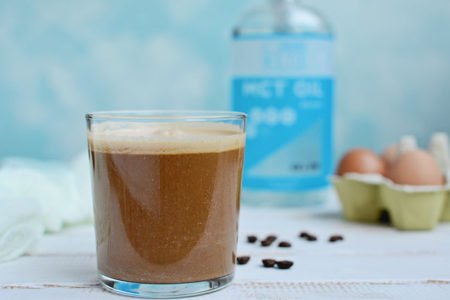

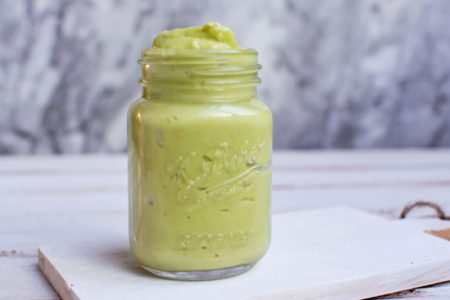

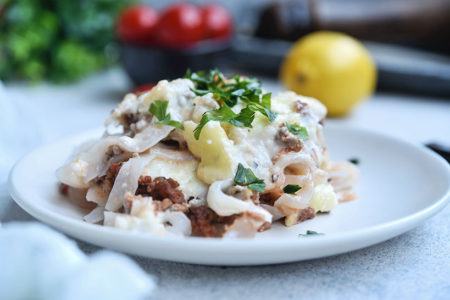



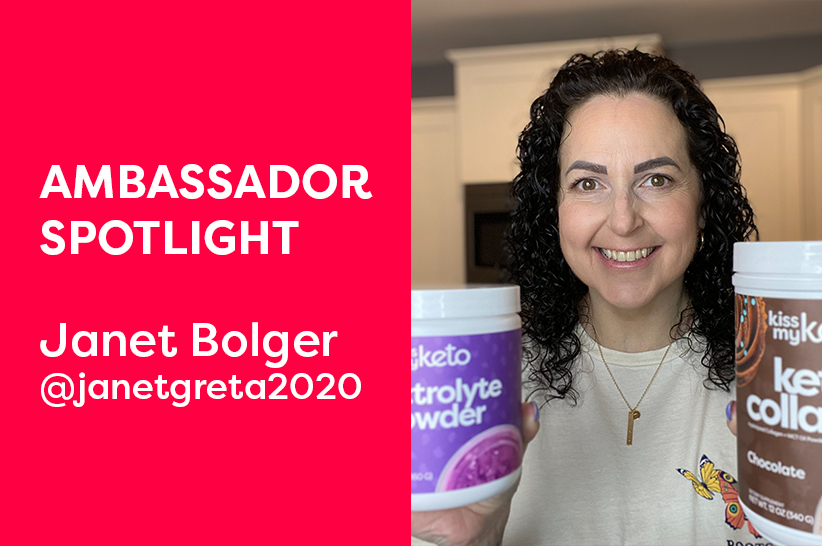

Love this list!! Thank you for posting this article and having a fact-checked and updated. <3